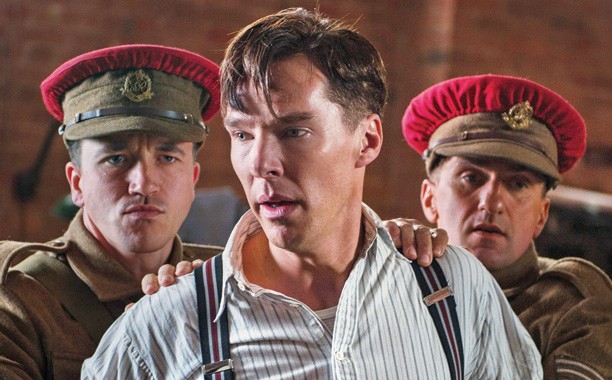IT'S LONG past due for the world to know more about Alan Turing, not only one of the 20th Century’s greatest unsung heroes but surely one of the most influential humans ever to live.
The eccentric math genius was chiefly responsible for breaking the German “Enigma” code in World War II, a supposedly unbreakable cipher the Nazis used for virtually all military communications.
Oh, and there’s this: Turing’s breakthroughs also formed the foundation and basic operating premise of the modern computer, in addition to the working concept of Artificial Intelligence. Not too shabby.
But Turing would never get the credit in lifetime he deserved; quite the opposite. His work still top secret and unknown to the public, he was convicted for the then-crime of homosexuality (“gross indecency” was the actual charge) in the early 1950s.
Among many other advantages, solving the code allowed the Allies to break the German submarine blockade of the British Isles, which in the war’s early days nearly succeeded in forcing a British surrender.
However, as the movie deals with in one of several scenes with a bit too much contrived expository dialogue, any time you break a military code you’re faced with the excruciating ethical dilemma of not letting the enemy know you’ve broken their code by acting too quickly or forcefully on the information you acquire.
It’s this itself-enigmatic layering of secret on secret on secret – wartime as well as personal -- that is the key to The Imitation Game’s success, and a reason to see it despite its occasional screenwriting glitches.
(Personifying the film's own core enigma is the wonderfully understated and dryly humorous performance by Mark Strong as MI6 spymaster Stewart Menzies.)
The other reason of course would be Benedict Cumberbatch, perfectly cast as the sad-faced, awkward but acid-tongued Turing. Cumberbatch channels his inner Sherlock during the beginning of the movie, but almost seems to lose his way with the characterization of the perpetually quirky Turing.
While Turing is reckoned a “monster” by his colleagues and misguided fiancée (played by Keira Knightley in a typical Keira Knightley turn), we never really witness truly monstrous behavior, just strong anti-social tendencies.
That's mostly a script issue. Cumberbatch’s only questionable acting decision – somewhat understandable given the modern sensitivity toward LGBT issues and awareness – was making Turing a bit too sympathetic, thus undercutting what was so fascinating about this irascible genius, who alienated those close to him even as he was literally winning the war for them.
Some viewers may be confused by the frequent breaking of chronological order: one scene in Bletchley Park during the war, another during police interrogation post-war, another flashing back to Turing’s schoolboy days, lather, rinse, repeat. But for the most part it’s handled as well as can be expected.
My only real gripe with The Imitation Game is its execrable CGI of airplanes, tanks, and submarines, with quality easily surpassed by even the most basic video game off the shelf at Target or Best Buy.
Not only is the rendering shockingly amateurish, it doesn’t pass the authenticity smell test either (for example, while German U-boats did indeed attack in packs, they weren’t just a few feet away from each other while they did it, and Tiger tanks weren’t even in production when the Nazis overran France, etc., etc.)





























